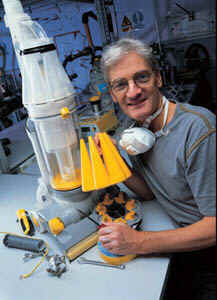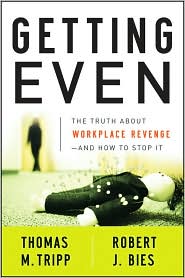The No Asshole Rule continues to provoke stories and reactions, many from the people who read this blog and
write to me, and although things are less crazy than a few months ago,
also continues to provoke media attention. This is a round-up of some interesting things that happened
over the past few weeks, plus I am giving a couple local talks in the area that
are open to the public this week.
Porcupines with hearts of gold. I received several detailed emails from
people who told me stories about bosses they had who, on first impression,
seemed like assholes, but after you got past their gruff exterior, they were
actually great people. I think that such stories are important to hear and
think about, and I am working on a post dedicated to people who, on first contact,
seem nasty, but are actually great people. I’ve always talked about how important
it is to be slow to label people as assholes, but am thinking about it more deeply
now. I mentioned this at a talk recently at a software firm, and the audience
just cracked-up when one engineer said something like “We say that people like
this have a bad user interface, but a good operating system.” If you have ideas and/or stories about this perspective, please write!
Subtle assholes. I received an especially thoughtful email from a
woman who started by saying “Thank you for your
book. I found that it reads almost like the Zen of Working with an asshole by
basing responses and framing situation as the kindest and happiest among us do.”
But she went on to make a great point about something that the book should have
developed more.
One comment, however. I felt that this book was almost too
heavily waited to the very flaming asshole and not nearly enough on the more
subtle arse. …..I would encourage you to
write about the methods and the effects of the more subtle arse; the alter-ego
to the flaming asshole – who can have just as profound an effect on people but
is much less obvious to weed out. I related well to the feeling of uselessness,
helplessness and lack of confidence that the more flaming assholes inspired in
the stories in your book. But I did not relate to the bosses’ characters that
made them feel that way. I think the subtler jerks are just as bad, but much,
much harder to recognize.
I
agree completely, and although I touch on jerks who treat others as invisible
and so on in The No Asshole Rule, I agree that I need to focus more on the moves made by
subtle assholes. Indeed, these more
subtle assholes actually can often get away with doing more damage than their
more “over the top” and less politically skilled counterparts.
Nasty to her nannies. A huge number of people in the United States –
and everywhere else in the world – work taking care of other people’s children,
and plenty of these bosses are assholes. Susan Tabas Tepper, a Phildelphia
area millionaire, is apparently a repeat
offender. The Main Line Times reports
The latest incident of alleged abuse occurred at about 10:40
p.m. on May 20.
Tepper, who had been drinking earlier that night at dinner, became angry when
Urszula Kordzior, a native of Poland
who was employed by Tepper as a nanny, wanted to leave the residence that
night, according to the criminal complaint.
Tepper allegedly blocked the doorway when Kordzior attempted to
exit the home and leave in a vehicle that Tepper provided as part of the
employment agreement, the complaint said. Demanding that Kordzior turn over the
keys to the vehicle, Tepper followed the nanny outside, the complaint said. Continuing
to yell at Kordzior, Tepper scratched the left side of Kordzior’s face and lip
with her hand and then shoved her to the ground, according to the complaint.
Kordzior’s nine-year-old daughter attempted to intervene,
telling Tepper not to hurt her mother, the complaint said. Tepper, using an
epithet directed at the girl, then shoved the girl, the complaint said.

The Flying ARSE takes off. I finally launched The Flying ARSE, a 24 item self-test that
you can take to see if you are driving other airline passengers, or perhaps to take
with others in mind. I thank Diego
and Pam
Slim for their posts, and several blog readers for making some suggestions about
improving the test. I will get some information from Electric Pulse about how many
people are taking the test and the range of scores. Meanwhile, the original ARSE is
approaching 90,000 completions.
Recent press coverage. I spent an hour on Joy Cardin’s show last Thursday on
Wisconsin Public Radio and had some most interesting callers. I was personally
most troubled by the faculty member from a university who complained that one
of his colleagues as constantly driving young faculty out of his academic
department, but that because this senior faculty member brought in a lot of
research money, everyone in the administration and his colleagues were afraid
to confront him about his behavior. Alas, academia can be as bad as the private
sector. You can listen to the program
here. I also had several other articles on the book appear including one in
CIO Insight
and another on TheStreet.com.
I found this article
by David Simanoff in the Tampa Tribune to be especially thoughtful.
The Huffington Post business section is live. As I wrote about a couple
weeks ago, The Huffington Post, one of the highest rated “gang blogs” on the
web is just starting a business
section. It went this weekend and
has some interesting posts. I especially
like the one by Giles Slade called Hold
the iPhone. I will also post there occasionally, and I just sent them a couple posts that introduce Huffington
readers to The No Asshole Rule.
Two talks and
book signings on May 30th. I am doing two talks and book signings in a
four hour period on Wednesday, May 30th in the Stanford area. Both are
open to the public. The first will be an interview by Stanford student Mike Rothenberg
in the DFJ Entrepreneurial Thought Leaders Seminar
Series on the Stanford Campus. It
will be held from 4:30 to 5:30 in the Skilling Auditorium and be followed by a
book signing. This is a Stanford class,
but it is open to the public, and Skilling holds a lot of people. Also, the talk will be available as podcast at the above URL within 24 hours (usually sooner than that). Next, I run over to Books INC in Mountain View to
talk about The No Asshole Rule and sign some books there too. That event starts at 7:30 and the bookstore in is at 301 Castro Street.
Parting shot: Bringing the book to work
can be risky! I
got this email awhile back, but never printed it: Mr.
Sutton- Maybe you have received similar emails, but I was just called by my
boss and told not to bring The No Asshole Rule book back to work. I left
the book on my desk at work and read it during breaks, and I didn’t care if
people saw the title or not, I actually talked about it to some
coworkers. Anyway, I thought you might be interested in how your book has
been banned in my office.
 James Dyson is the inventor of the successful and now common Dual Cyclone bagless vacuum cleaner. I did a session yesterday on design thinking with a group of executive MBA's yesterday. One who had consulted to the company pointed out that Dyson — supported by his wife's job as an art teacher — took five years and 5127 failed prototype to develop on that worked. If failure sucks but instructs, that is a lot of learning. It also is an interesting case because it shows how difficult it is to make rational decisions in the innovation process. Certainly, say 4000 prototypes and 4 years into the adventrue, any reasonable person would have assumed that this was a failure, an extreme case of escalating commitment to a failed course of action. As I have written here before, James March described this aspect of creativity elegantly:
James Dyson is the inventor of the successful and now common Dual Cyclone bagless vacuum cleaner. I did a session yesterday on design thinking with a group of executive MBA's yesterday. One who had consulted to the company pointed out that Dyson — supported by his wife's job as an art teacher — took five years and 5127 failed prototype to develop on that worked. If failure sucks but instructs, that is a lot of learning. It also is an interesting case because it shows how difficult it is to make rational decisions in the innovation process. Certainly, say 4000 prototypes and 4 years into the adventrue, any reasonable person would have assumed that this was a failure, an extreme case of escalating commitment to a failed course of action. As I have written here before, James March described this aspect of creativity elegantly: 



